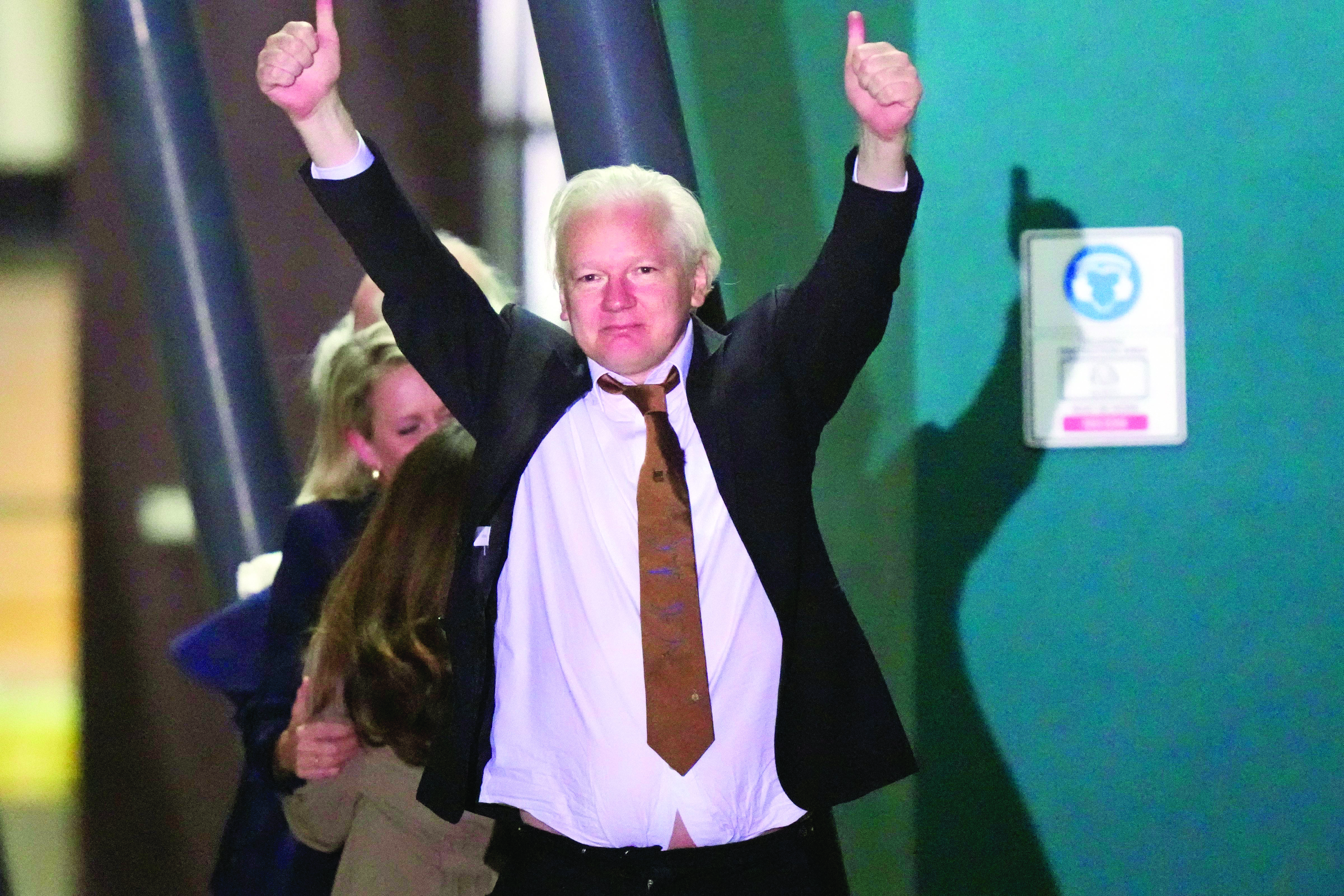Julian Assange returns to Australia a free man

Canberra: WikiLeaks founder Julian Assange returned to Australia on Wednesday aboard a charter jet, hours after pleading guilty to obtaining and publishing US military secrets in a deal with the Justice Department. This agreement concludes a long legal saga.
Assange, 52, entered his plea in a US district court in Saipan, the capital of the Northern Mariana Islands, to avoid entering the continental United States. He was accused of receiving and publishing hundreds of thousands of war logs and diplomatic cables, exposing US military misconduct in Iraq and Afghanistan. His actions garnered support from press freedom advocates but faced criticism from national security hawks.
Among the published files was a video of a 2007 Apache helicopter attack in Baghdad that killed 11 people, including two Reuters journalists.
Assange’s supporters cheered as he arrived at Canberra airport, where he was greeted by his wife Stella Assange and his father John Shipton. Prime Minister Anthony Albanese praised Assange and the Australian government’s efforts in securing his return.
Assange was accompanied by Australian Ambassador to the US Kevin Rudd and High Commissioner to the UK Stephen Smith, who played key roles in negotiating his freedom. The flights were funded by the “Assange team,” with the government facilitating transport.
Albanese stated that Assange’s freedom was the result of “careful, patient, and determined work” by his government. Assange’s lawyer, Jennifer Robinson, thanked Albanese for his leadership in achieving this outcome.
Assange’s future plans remain unclear, but his lawyer Barry Pollack expects him to continue advocating for freedom of speech and government transparency. Assange’s father expressed hope that his son would enjoy the “great beauty of ordinary life.”
The plea deal required Assange to admit guilt to a single felony count but allowed him to return to Australia without serving time in an American prison. He was sentenced to the five years he had already spent in a UK prison fighting extradition. Before that, he spent seven years in the Ecuadorian Embassy in London.
The Justice Department resolved a case that raised complex legal issues without going to trial, while Assange acknowledged the consequences of soliciting classified information, despite believing the Espionage Act contradicted the First Amendment.
Prosecutors alleged Assange conspired with former Army intelligence analyst Chelsea Manning to obtain and publish records without regard for US national security. The indictment, unsealed in 2019, accused Assange of exposing names of human sources who provided information to US forces in Iraq and Afghanistan.
Assange’s legal troubles began in 2010 when a Swedish prosecutor issued an arrest warrant for allegations of rape and molestation, which were later dropped. He claimed asylum in the Ecuadorian Embassy in London in 2012 and stayed there until 2019 when British police arrested him. He remained in prison while the US sought extradition, which British judges scrutinised for potential harsh treatment.
Last month, Assange won the right to appeal an extradition order, arguing the US government’s assurances of free speech protections were inadequate.
His wife, Stella Assange, expressed elation at the news of his
release after a secret bail hearing last week.



